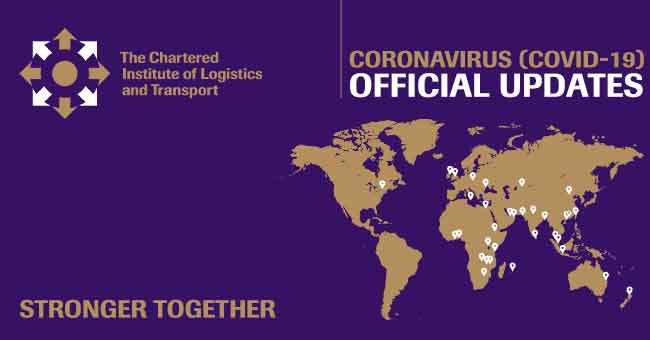CILT Zambia reports that disruption caused by Covid-19 to Zambia’s economic activities has had a telling effect on local trade as the country records its sharpest fall ever in private sector business. Following the pronouncement by the World Health Organization (WHO) that economies need to adapt to the ‘new normal’, both the government and the private sector have subscribed to strategic measures towards business continuity in supply chain, logistics and transport sectors.
Government interventions
In order to promote business continuity and the on-going management of risk, government has opted to collaborate with different local and international stakeholders. Collaboration between the Government and the private business sector has shown significant progress in mitigating the impact of Covid-19 on socio-economic development.
The Ministry of Transport and Communication, in collaboration with various stakeholders in supply chain, logistics and transport and the information communications technology (ICT) sub- sector, has ensured that ICT services have continued to operate throughout business continuation plans.
In order to cushion the impact on business due to Covid-19, government came up with strategic decision to waiver tax, and penalties and interest on outstanding tax liabilities resulting from the impact of Covid-19. This has assisted private companies and businesses to manage cash flow during this period when they are facing low revenue.
Government has also suspended customs duties and VAT on additional medical supplies used in the fight against Covid-19. They further extended the list of medical supplies that are not subjected to import duty and value added tax for an initial period of six months.
The government of Zambia has managed to provide relief to businesses in the wake of Covid-19 by removing provision SI No. 90 relating to claims of VAT on imported spare parts, lubricants and stationary to ease pressure on private companies and business. They further suspended duty on the importation of concentrates in the mine sector and also suspended export duty on precious minerals to ease the burden on the sector.
The Ministry of Commerce, Trade and Industry was directed by the President to ensure that chain stores prioritise local agriculture products following the serious realisation that importation of farm products had drastically reduced.
The Zambian government, through its Law enforcers (Road Transport Safety Agency/ Zambia Police), has been escorting all cross border trucks in transit in order to avoid unnecessary stoppages.
Zambia and South Africa have formed a private sector working group to create a framework targeted at ensuring the smooth flow of essential goods and services in the region, during Covid-19 lockdowns in most South African Development Community (SADC) countries .
Private sector on business continuity
The private sector in Zambia has formed a taskforce called the Business Coalition Council Emergency Taskforce comprising of various industry leaders to augment the response to the Covid-19 pandemic. This taskforce is aimed at ensuring co-ordination, co-operation, communication and the adoption of a holistic approach to help private business and households navigate economic distress in the wake of the Covid-19 pandemic and the post pandemic period.
Government has allowed private business players in supply chain, logistics and transport to continue operating at normal capacity.
All the adjustments towards business continuity and the on-going management of risks in Zambia are subject to public health guidelines, regulations and certification such as wearing face masks, observing social distance, hand washing, and ensuring high levels of hygiene.
This is an example of industry analysis from Zambia which we are sharing as part of our global best practice resource to help you think about and determine appropriate responses locally.

